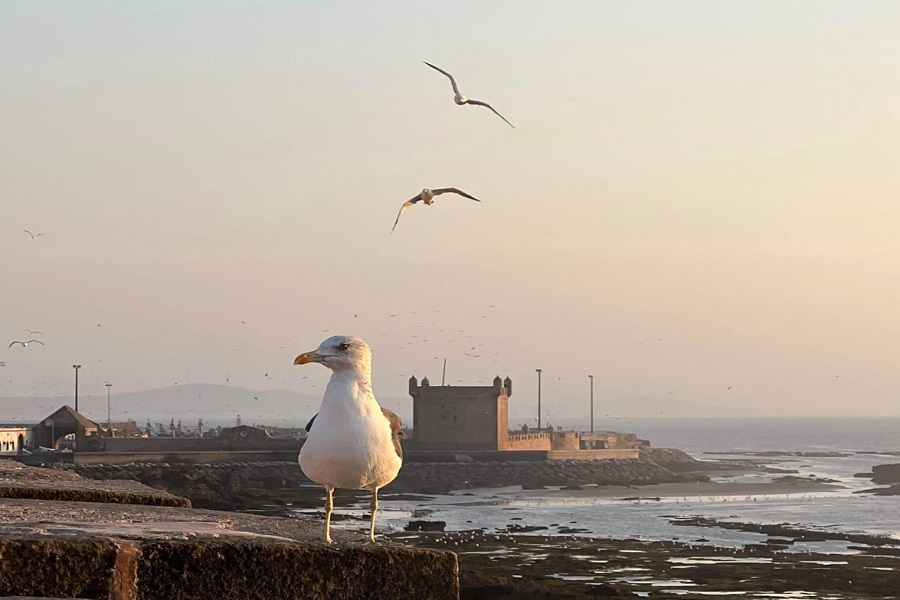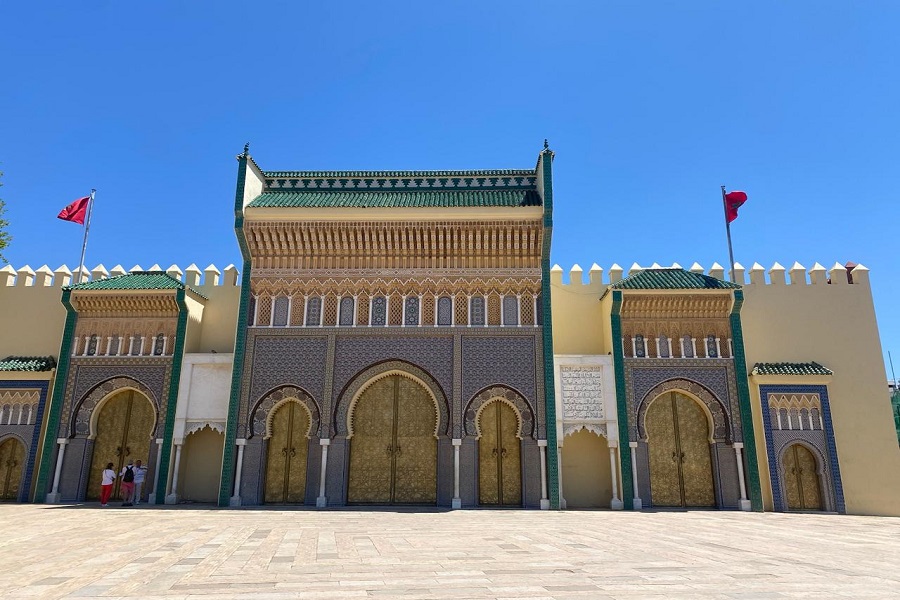Morocco Sahara Desert
The Sahara Desert, the world’s largest hot desert, stretches across North Africa, covering parts of several countries, including Morocco. The Moroccan portion of the Sahara Desert, known for its striking landscapes and cultural richness, offers a unique experience blending natural beauty, adventure, and a deep sense of history.
Geography and Climate
The Moroccan Sahara lies in the southeastern part of the country, encompassing regions such as Merzouga, Zagora, and M’Hamid. It features a variety of landscapes, including vast sand dunes, rocky plateaus, and stony plains. The most iconic area is Erg Chebbi, near Merzouga, where dunes can reach heights of up to 150 meters (500 feet).
The climate is typically harsh, with extreme temperatures. Summers are intensely hot, often exceeding 40°C (104°F), while winters can be surprisingly cold, especially at night, with temperatures occasionally dropping below freezing. Rainfall is scarce, leading to a predominantly arid environment.
Cultural Significance
The Moroccan Sahara is home to nomadic Berber tribes who have lived in the region for centuries. Their traditional lifestyle, characterized by herding and caravan trade, offers a glimpse into a way of life that has remained largely unchanged for generations. The Berber culture is rich with unique music, dance, and art, often showcased in local festivals and gatherings.
Tourism and Activities
The Sahara Desert is a major draw for tourists seeking adventure and cultural immersion. Popular activities include:
- Camel Trekking: Riding camels across the dunes is a quintessential Sahara experience, often culminating in overnight stays at desert camps where visitors can enjoy traditional Berber hospitality.
- 4×4 Excursions: Off-road tours provide an exciting way to explore the desert’s remote areas and discover hidden oases and ancient ruins.
- Sandboarding: For the adventurous, sandboarding down the dunes offers a thrilling experience.
- Stargazing: The clear, unpolluted skies of the Sahara make it an ideal location for stargazing. With an unparalleled view of the Milky Way.
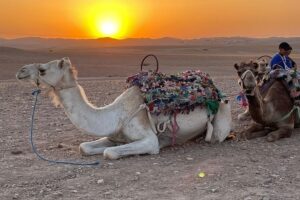
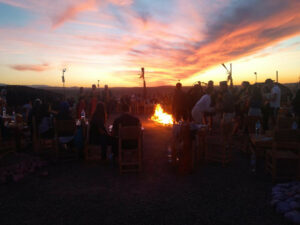
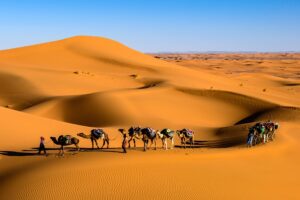
Environmental and Conservation Issues
The fragile ecosystem of the Sahara faces several environmental challenges, including desertification, climate change, and human impact from tourism. Efforts are underway to promote sustainable tourism practices that minimize environmental footprints and support the conservation of this unique landscape.
The Moroccan Sahara Desert is a land of stunning contrasts and deep cultural heritage. From its towering dunes and vast empty spaces to the vibrant traditions of the Berber people. It offers a unique and unforgettable experience. Whether you’re seeking adventure, tranquility, or a connection to a timeless way of life. The Moroccan Sahara holds a special allure that captivates all who visit.
